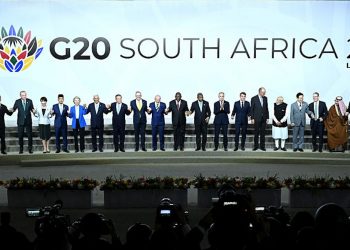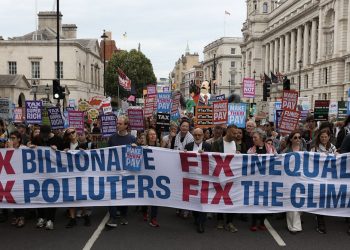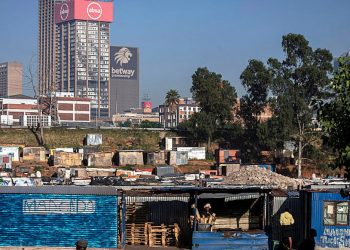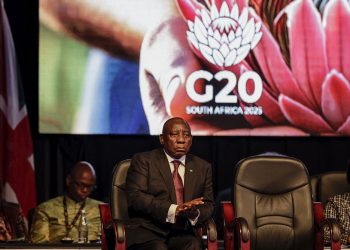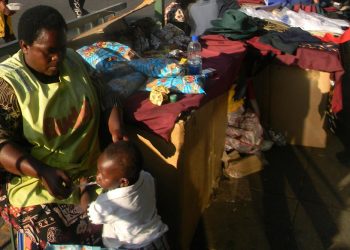Over the past two decades African leaders have become increasingly drawn to Chinese financing and investment. These investments are made rapidly and with reportedly less stringent conditions than traditional financing sources. Some also suggest that China’s approach aligns more closely with African priorities.
This sentiment was summarised by the former president of Senegal, Abdoulaye Wade, in 2008:
China’s approach to our needs is simply better adapted than the slow and sometimes patronising post-colonial approach of European investors, donor organisations and non-governmental organisations … China has helped African nations build infrastructure projects in record time.
African leaders attending this year’s 8th Forum on China-Africa Cooperation in Beijing will, no doubt, want to attract more Chinese finance and investment. The forum, which is the coordination mechanism between African countries and China, is held every three years. It aims to promote diplomacy, trade, security and investment relations between China and Africa.
Since the inaugural summit in 2000, Beijing has committed over US$170 billion in grants and loans to African countries. This has included highways, ports and urban rail.
One outcome of these investments has been that they have begun actively shaping the continent’s cities. And the future investment African leaders seek is even more urgently needed to support African cities in becoming more productive, liveable and sustainable.
The challenges facing cities are the focus of discussions happening this week at the inaugural Africa Urban Forum in Addis Ababa, the Ethiopian capital. The aim of this event is to help shape and support inclusive human settlement development.
Though likely coincidental, the juxtaposition of these events is a reminder that the investment African leaders seek in Beijing is needed for African cities.
As an urban economist with a focus on financing public infrastructure and services, I am interested, as part of my research comparing Africa’s and China’s urbanisation experiences, in understanding why Africa has not benefited from Chinese investments and how to change this trend.
The power of infrastructure
China has influenced Africa’s urbanisation through the Belt and Road Initiative. Launched in 2013, this infrastructure project aims to create a network of economic and trade routes connecting China and the rest of the world.
As of December 2023, 44 of 54 African countries had signed on to the Belt and Road Initiative. It’s estimated that through this initiative, China has invested 2.5 times more in African infrastructure development than all western countries combined.
Investing in infrastructure can have substantial multiplier effects on economic growth and development. In the short term, it generates demand for goods and services, especially in construction.
Over the long term, if well-planned and executed, it can boost economic growth and development. This is particularly true for urban infrastructure investments. Cities thrive on their ability to link labour to firms, firms to each other for inputs, and businesses to domestic and export markets.
China’s experience at home has shown how this can be done. In less than a decade, China developed the world’s most extensive high-speed rail network at costs up to a third lower than those in other countries.
And between 1980 and 2000, China constructed over 184 new ports, many in collaboration with foreign companies, to ease the export of goods it was producing in its expanding economy.
These massive infrastructure investments have driven China’s economic transformation from a largely agrarian economy to the world’s second largest economy. This shift through urbanisation and industrialisation in turn has helped China lift more than 800 million people out of poverty since 1978.
What hasn’t worked
African countries have yet to fully realise the potential benefits to urbanisation of China’s infrastructure spend. Some of the most expensive investments under the Belt and Road Initiative remain disconnected and risk becoming “white elephants”.
These include Kenya’s Standard Gauge Railway. The Kenyan government took on high levels of debt to finance it. But the line’s commercial viability depends on its extension to Uganda and Rwanda, which has yet to happen.
In Uganda, another example is the expressway between Entebbe airport and Kampala, the capital city. It was financed and built by the Chinese. The project’s ballooning costs have made it one of the most expensive roads per kilometre in the world. Repayment of the Chinese loans will be challenging unless the road attracts much more traffic and generates sufficient toll revenue.
The other issue with some Chinese-financed projects relates to long-term planning.
For example, the urban light rail in Addis Ababa was built at a cost of US$475 million and began operating in 2015. Having underestimated the operational and maintenance costs, the Ethiopian government is now struggling to sustain the system. The light rail, which is transporting a fraction of the passengers compared to initial projections, requires an estimated US$60 million in repairs.
Funding
The lack of transparency accompanying China’s lending has led critics to call these types of projects “debt-trap diplomacy”. In essence, they claim China is deliberately extending loans to African countries under terms that are difficult to repay, so that borrowers will have to surrender assets when they default.
But there are three observations worth making. First, commercial loans from western entities or multilateral institutions still dominate lending to many African countries.
Second, China is also concerned about debt sustainability and repayment of its loans. For this reason, its financing to African countries in terms of the Belt and Road Initiative dropped by 55% between 2021 and 2022 from US$16.5 billion to US$7.5 billion.
Finally, this narrative overlooks the agency of African leaders in negotiating and approving Chinese financing deals. These loans are signed off by African ministers and ratified by parliaments and presidents. Therefore, African leaders are accountable for making productive investment decisions on behalf of citizens whose taxes will need to be used for repayment.
China’s expertise
With over two decades of Chinese investment in rapidly urbanising Africa, and likely much more to come, it is now crucial to evaluate what has been successful and identify areas for improvement.
China possesses credible expertise on urbanisation. It has recent experience in managing an urban transition much like the one currently unfolding in Africa. This transition took place alongside economic transformation and poverty reduction.
So it has a role in shaping African urbanisation, benefiting both sides.
But it’s up to African leaders to champion their priorities.
Astrid R.N. Haas does not work for, consult, own shares in or receive funding from any company or organisation that would benefit from this article, and has disclosed no relevant affiliations beyond their academic appointment.


